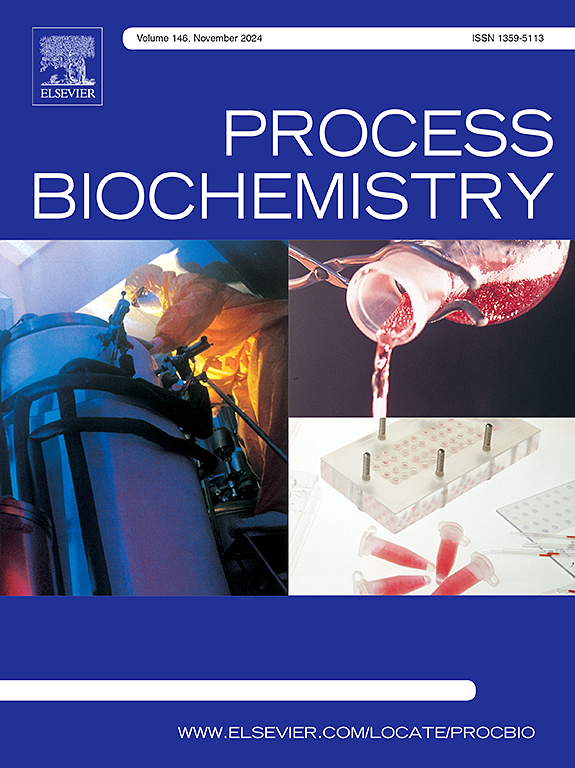迈向循环经济:利用细菌可持续降解塑料废物
IF 4
3区 生物学
Q2 BIOCHEMISTRY & MOLECULAR BIOLOGY
引用次数: 0
摘要
塑料污染日益普遍,对环境构成重大挑战,需要创新和可持续的废物管理方法。本文研究了两种主要细菌属假单胞菌和芽孢杆菌的生物降解潜力。它们在降解各种塑料聚合物方面表现出了卓越的能力,包括LDPE、HDPE、PP、PET和PLA。这两个属都表现出广泛的底物范围,并采用不同的酶机制,如脂肪酶、水解酶和漆酶,以促进塑料分解。虽然菌株特异性对降解效率至关重要,但研究表明,混合培养群体中的协同作用可以提高整体降解率。尽管在细菌降解塑料方面取得了有希望的进展,但挑战仍然存在,包括降解率的可变性和对标准化测试方案的需求。未来的研究应侧重于鉴定高性能菌株,表征其酶谱,优化环境条件以提高生物降解效果。通过利用细菌的自然能力,这项工作突出了开发有效生物修复策略的潜力,这些策略有助于循环经济和解决塑料废物的紧迫问题。本文章由计算机程序翻译,如有差异,请以英文原文为准。
Towards a circular economy: Harnessing bacteria for sustainable plastic waste degradation
The increasing prevalence of plastic pollution poses a significant environmental challenge, necessitating innovative and sustainable approaches to waste management. In this research the biodegradation potential of two prominent bacterial genera, Pseudomonas and Bacillus. These have demonstrated remarkable capabilities in degrading various plastic polymers, including LDPE, HDPE, PP, PET, and PLA. Both genera exhibit a broad substrate range and employ diverse enzymatic mechanisms, such as lipases, hydrolases, and laccases, to facilitate plastic breakdown. While strain specificity is crucial in degradation efficiency, studies indicate synergistic interactions in mixed-culture consortia can enhance overall degradation rates. Despite the promising advancements in bacterial plastic degradation, challenges remain, including variability in degradation rates and the need for standardized testing protocols. Future research should focus on identifying high-performing strains, characterizing their enzymatic profiles, and optimizing environmental conditions to improve biodegradation outcomes. By harnessing the natural capabilities of bacteria, this work highlights the potential for developing effective bioremediation strategies that contribute to a circular economy and address the pressing issue of plastic waste.
求助全文
通过发布文献求助,成功后即可免费获取论文全文。
去求助
来源期刊

Process Biochemistry
生物-工程:化工
CiteScore
8.30
自引率
4.50%
发文量
374
审稿时长
53 days
期刊介绍:
Process Biochemistry is an application-orientated research journal devoted to reporting advances with originality and novelty, in the science and technology of the processes involving bioactive molecules and living organisms. These processes concern the production of useful metabolites or materials, or the removal of toxic compounds using tools and methods of current biology and engineering. Its main areas of interest include novel bioprocesses and enabling technologies (such as nanobiotechnology, tissue engineering, directed evolution, metabolic engineering, systems biology, and synthetic biology) applicable in food (nutraceutical), healthcare (medical, pharmaceutical, cosmetic), energy (biofuels), environmental, and biorefinery industries and their underlying biological and engineering principles.
 求助内容:
求助内容: 应助结果提醒方式:
应助结果提醒方式:


